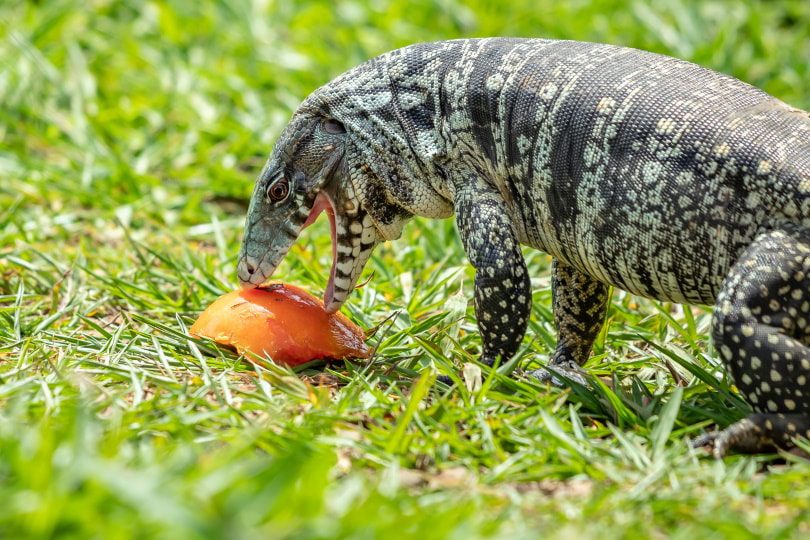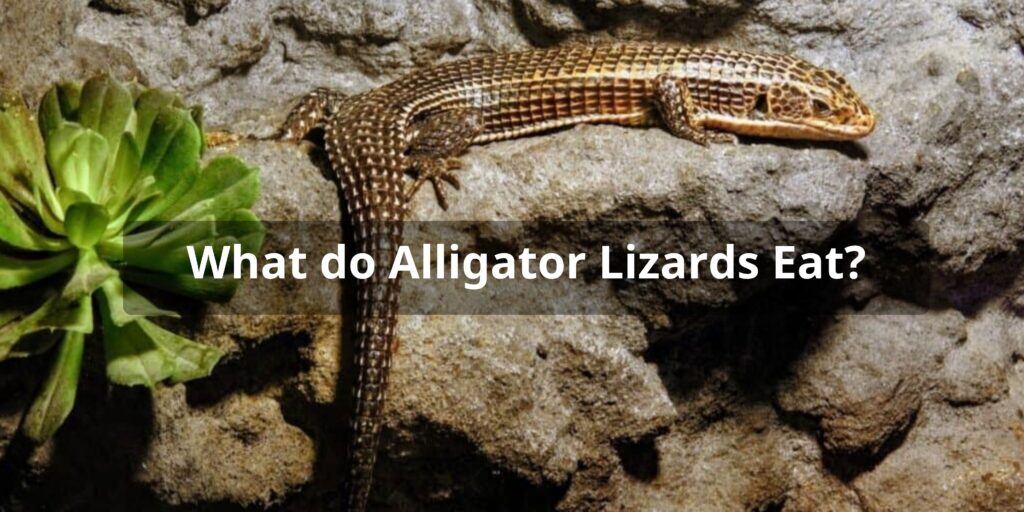Tegus, a type of lizard known for their intelligence and captivating appearance, have specific dietary requirements that are vital for their health and well-being. Understanding the tegu diet is crucial whether you have these fascinating creatures as pets or want to learn more about their natural feeding habits in the wild. In this article, we will explore the intricacies of the tegu diet, including their preferred food options, essential nutrients they need, foods to avoid, and practical feeding guidelines for tegu owners. Let’s delve into the world of tegu nutrition and ensure these remarkable lizards thrive in their dietary choices.
Tegu Diet Basics
- At different stages of their life, tegus require varying ratios of insects to plant-based foods. It is important to maintain an appropriate balance to meet their nutritional needs.
- Hatchlings and juvenile tegus primarily consume insects, with a ratio of approximately 70% live food to 30% plant-based food.
- As tegus grow into adults, their diet should gradually shift to about 50% live food and 50% plant-based food.
- Feeding frequency varies with age as well. Young tegus should be fed daily, while adult tegus can be fed every other day.
Essential Foods for Tegu Diet

Preferred Live Food Options
- Crickets: An excellent source of protein and easily digestible for tegus.
- Mealworms: These larvae are rich in fats and proteins, making them a nutritious choice.
- Dubia Roaches: High in fiber and low in fat, these roaches are a great staple live food option.
- Silkworms: A soft-bodied insect that provides essential nutrients like calcium and protein.
- Hornworms: With a high water content, hornworms aid in hydration, while offering a good protein source.
- Superworms: A suitable option for larger tegus due to their size and higher fat content.
Safe Vegetables for Regular Intake
- Collard Greens: Packed with calcium, collard greens are an important leafy green for tegus.
- Mustard Greens: Rich in vitamins A and K, these greens contribute to a well-rounded diet.
- Kale: A nutrient-dense choice containing vitamins A, C, and calcium.
- Bok Choy: Provides essential vitamins and minerals while adding variety to the diet.
- Dandelion Greens: Safe and nutritious, dandelion greens offer a range of vitamins and minerals.
Recommended Fruits for Tegu Diet
- Blueberries: High in antioxidants and fiber, blueberries make a healthy treat for tegus.
- Papaya: A tropical fruit that aids in digestion and provides vitamin C.
- Mango: Rich in vitamins A and E, mangoes offer a tasty addition to the tegu diet.
- Strawberries: With their natural sweetness and vitamin C content, strawberries are enjoyed by many tegus.
- Watermelon: A hydrating fruit that tegus often find irresistible during hot weather.
Essential Vitamins & Minerals
Certain vitamins and minerals play a crucial role in the tegu diet:
- Calcium: Adequate calcium intake is vital for tegus to maintain strong bones and prevent metabolic bone disease. Calcium supplements or calcium-rich food items should be included in their diet.
- Vitamin D3: Necessary for proper calcium absorption, tegus can obtain this vitamin through UVB exposure or vitamin D3 supplements.
- Vitamin A: Promotes good eye health and overall immune function. Carrots, sweet potatoes, and other orange vegetables can provide vitamin A to tegus.
- Omega-3 Fatty Acids: These beneficial fats support tegu cardiovascular health. Offer foods like fish, flaxseed, and chia seeds occasionally.
Foods to Avoid for Tegu
While tegus have a varied diet, there are some foods they should avoid due to potential health risks:
- Toxic Insects: Fireflies, ants, and certain beetles can be harmful or toxic to tegus.
- Oxalate-Rich Greens: Spinach and Swiss chard contain oxalates that can interfere with calcium absorption. Limit their intake.
- Avocado: This fruit is toxic to many reptiles and should not be given to tegus.
- Citrus Fruits: The high acidity of citrus fruits can cause digestive issues in tegus.
- Onions and Garlic: These vegetables can be toxic to reptiles and should be avoided.
Feeding Guidelines for Tegu Owners

- Offer a variety of live insects and plant-based foods to ensure a well-rounded diet.
- Dust insects with calcium and vitamin supplements before feeding them to tegus.
- Always provide clean, fresh water for drinking and bathing purposes.
- Observe tegus during feeding to ensure they eat sufficiently and monitor their overall health.
- Adjust the feeding schedule based onthe tegu’s behavior and appetite. If they are consistently refusing food or showing signs of overeating, adjustments may be necessary.
- Avoid overfeeding tegus, as obesity can lead to health issues. Monitor their body condition and adjust portion sizes accordingly.
- Provide a balanced diet that includes a mix of protein, vegetables, fruits, and essential supplements.
- Be mindful of the size of the food items offered, ensuring they are appropriate for the tegu’s age and size.
- Consider incorporating enrichment activities during feeding time, such as hiding food or using food puzzles, to stimulate their natural foraging instincts.
Understanding Tegu Hydration Needs
Hydration is crucial for tegus, and providing an adequate water source is essential to maintaining their health. Here are some important considerations regarding tegu hydration:
- Ensure fresh, clean water is available at all times in a shallow dish large enough for the tegu to soak in.
- Tegus may not only drink water but also use it for bathing and regulating body temperature.
- Monitor the water dish regularly, refreshing it when needed, and keeping it free from debris.
- During hot weather or when tegus are shedding, misting or offering a shallow water container for soaking can help maintain proper hydration levels.
- Observe your tegu’s behavior and habits to ensure they are adequately hydrated. Signs of dehydration include sunken eyes, dry mouth, and lethargy.
Conclusion
Understanding the dietary needs of tegus is essential for their overall health and well-being. By providing a balanced diet that includes a variety of live insects, safe vegetables, and recommended fruits, you can ensure your tegu receives the necessary nutrients. Additionally, being aware of foods to avoid and following practical feeding guidelines will optimize their nutrition and prevent potential health issues. Remember to offer fresh water for drinking and bathing to meet their hydration needs. By implementing these guidelines, you can create a healthy and satisfying diet for your tegu, both in the wild and as a beloved pet.
FAQs About Tegu Diet
How often should I feed my Tegu?
Tegus should be fed daily when young, gradually reducing to every other day for adults. Adjust the frequency based on your Tegu’s age, size, and activity level.
Can Tegus eat fruits and vegetables?
Yes, Tegus can eat a variety of fruits and vegetables. Offer dark leafy greens, squash, bell peppers, and occasional fruits like berries. Moderation is key due to the sugar content in fruits.
What are the main components of a Tegu’s diet?
A Tegu’s diet should consist of lean protein sources like insects, rodents, and eggs. Vegetables, fruits, and occasional small amounts of cooked lean meat contribute to a balanced diet.
Is a varied diet important for Tegu health?
Yes, a varied diet is crucial for Tegu health. Providing a diverse range of foods ensures they receive necessary nutrients and reduces the risk of dietary deficiencies.
Should I provide supplements for my Tegu’s diet?
Yes, supplements are important. Calcium and vitamin D3 supplements are necessary to prevent metabolic bone disease. Dust insects and food with these supplements as directed by a veterinarian.
Are there any foods that Tegus should avoid?
Avoid feeding Tegus high-fat and high-sugar foods, processed meats, and foods high in oxalates like spinach. Also, avoid feeding wild-caught insects due to potential pesticide exposure.
How can I ensure my Tegu gets proper hydration?
Provide a shallow water dish for Tegus to drink from. Additionally, offer moisture-rich foods like cucumbers or soaked greens to support hydration.
What are some signs of an inadequate Tegu diet?
Signs of an inadequate Tegu diet include weight loss, lethargy, brittle bones, soft shells, difficulty shedding, and dental issues. A proper diet is essential for overall health.
Can a balanced diet improve Tegu’s growth and vitality?
Yes, a balanced diet positively impacts Tegu growth and vitality. Proper nutrition supports healthy bone development, immune function, and overall well-being, contributing to their growth and overall vitality.




